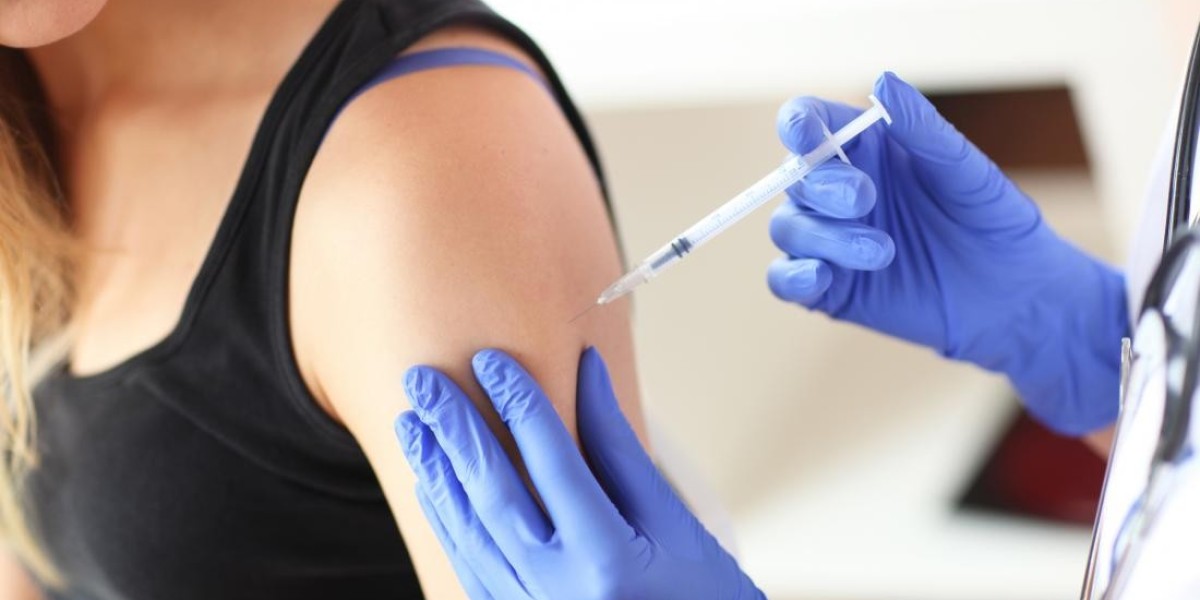For people struggling with constant sneezing, itchy eyes, congestion, or asthma flare-ups, allergies can feel overwhelming. Medications may provide temporary relief, but they don’t always address the real problem. That’s why many turn to allergy shots, a treatment that retrains the immune system to react less strongly to allergens. This guide will help you understand whether you should consider this long-term allergy treatment.
What Are Allergy Shots?
Allergy shots, also known as allergen immunotherapy, are a proven treatment option for environmental allergies such as pollen, dust mites, mold, pet dander, and insect stings. They work by gradually exposing your immune system to small amounts of allergens, helping it build tolerance over time.
Treatment involves two stages:
Build-up phase: Weekly or biweekly injections with increasing doses for 3–6 months.
Maintenance phase: Injections every 2–4 weeks for 3–5 years.
Who Should Consider Allergy Shots?
You may be an ideal candidate if you fit into the following categories:
1. You Have Moderate to Severe Allergies
If your allergies significantly affect your daily activities, sleep, or work performance, allergy shots may be worth considering.
2. Medications Don’t Provide Enough Relief
Some people find that antihistamines, nasal sprays, or decongestants don’t fully control their symptoms. In such cases, immunotherapy offers a deeper solution.
3. You Want Long-Term Relief
Unlike medications that you need daily, allergy shots work over time to reduce your immune system’s reaction for years after treatment.
4. You Have Allergic Asthma
For individuals with asthma triggered by allergens like dust or pollen, shots can help reduce flare-ups and improve breathing.
5. You’re Allergic to Insect Stings
People who react strongly to bee, wasp, or hornet stings may benefit greatly from allergy shots, as immunotherapy can lower the risk of severe reactions.
6. Children With Allergies
Kids as young as 5 years old can receive shots. Early treatment may even prevent the development of new allergies or asthma.
Who Should Not Consider Allergy Shots?
Not everyone is a good fit. You may need to avoid allergy shots if:
You have uncontrolled asthma.
You’re pregnant (treatment may need to be postponed or modified).
You’re taking beta-blockers or other medications that increase reaction risks.
You cannot commit to the treatment schedule.
What Allergies Do Shots Not Treat?
It’s important to note that allergy shots are not designed for food allergies or skin conditions like eczema. They are most effective for environmental allergens and insect stings.
Benefits of Allergy Shots for the Right Candidates
Long-term symptom relief.
Less reliance on medications.
Improved quality of life.
Potential prevention of new allergies in children.
Reduced risk of asthma flare-ups.
What to Expect if You Qualify
If you’re a candidate, here’s what the process looks like:
Allergy testing to identify triggers.
Customized treatment plan created by a specialist.
Regular injections given under medical supervision.
Observation period after each shot to monitor reactions.
Long-term relief after years of consistent treatment.
Final Thoughts
Allergy shots are not a quick fix, but for the right candidates, they provide lasting relief and improved quality of life. If allergies interfere with your daily routine or medications don’t provide enough help, discussing immunotherapy with a specialist may be the next step.
Frequently Asked Questions (FAQs)
Q1. At what age can children start allergy shots?
Children as young as 5 years old may be eligible, depending on their health and allergy severity.
Q2. Do allergy shots help with pet allergies?
Yes, they can reduce reactions to cats, dogs, and other animals.
Q3. How do I know if I qualify for allergy shots?
A doctor will evaluate your symptoms, medical history, and allergy test results.
Q4. Can pregnant women continue allergy shots?
If you are already on maintenance shots, you may continue under supervision, but starting treatment during pregnancy is not recommended.
Q5. How long do allergy shots last after treatment ends?
Many people experience lasting relief for years after completing the 3–5 year treatment program.






